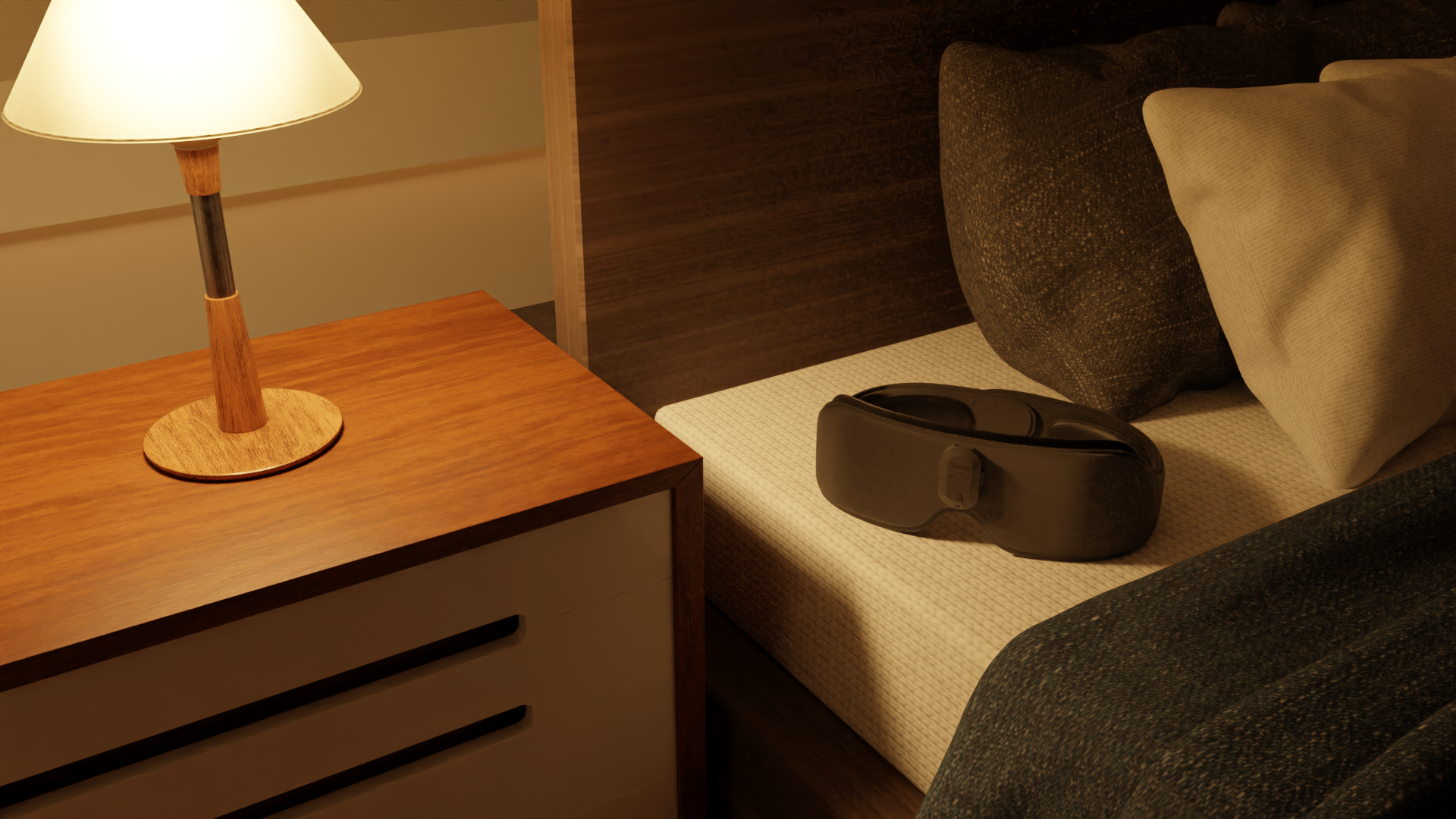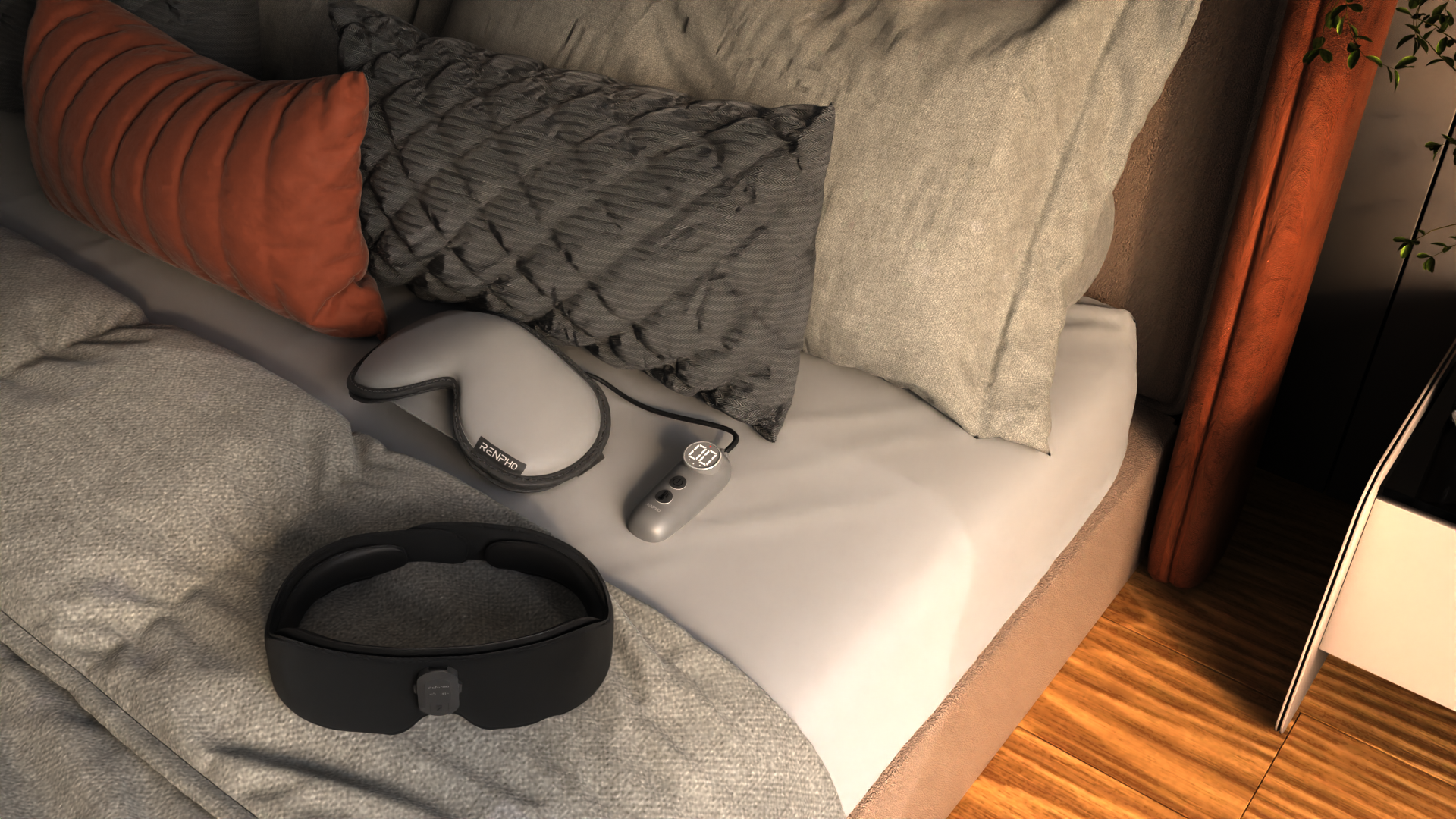Slumber’s Shield: How Sleep Fortifies You Against Stress

Stay tuned to our latest news
Stress is a relentless shadow, lurking at the edges of our daily existence. From work deadlines to personal responsibilities, the demands of modern life can weigh heavily on our shoulders. Amid this whirlwind, we often overlook a potent antidote: sleep. In our quest for productivity and success, we inadvertently sideline the very ingredient that could shield us from stress’s relentless assault. But what if we told you that beneath the veil of night lies a powerful ally—one that not only rejuvenates our bodies but also fortifies our minds? Let’s embark on a journey into the realm of restful slumber, exploring its profound impact on stress management and overall well-being.
Relationship Between Sleep Quality and Mental Health

Sleep plays a crucial role in our overall well-being and mental health. It is not uncommon to turn to sleep as a coping mechanism for stress, as it allows our minds and bodies to recharge and recover from the daily demands of life. However, the relationship between sleep quality and mental health is more complex than simply using sleep as a temporary escape from stressors.
Numerous studies have shown that poor sleep quality is strongly linked to various mental health issues, including depression, anxiety, and even increased risk of developing psychiatric disorders. When we don't obtain sufficient, restful sleep, our brains become more prone to negative thinking patterns and heightened emotional reactivity. This, in turn, can exacerbate existing mental health conditions or make it more difficult to effectively cope with stressors.
One aspect of sleep quality that has a direct impact on mental health is the duration of sleep. Insufficient sleep or chronic sleep deprivation can impair cognitive functioning, memory, and concentration, making it harder to manage daily tasks and responsibilities. Moreover, individuals who consistently struggle with sleep tend to experience higher levels of emotional distress, irritability, and mood swings, leading to a decline in mental well-being.
Sleep architecture, the structure and pattern of sleep stages throughout the night, also plays a significant role in mental health. Rapid eye movement (REM) sleep, which occurs during the later stages of the sleep cycle, is crucial for emotional regulation and processing of traumatic experiences. Inadequate REM sleep can disrupt these processes, leading to heightened emotional reactivity, increased vulnerability to stressors, and a higher risk of developing mental health disorders such as post-traumatic stress disorder (PTSD).
Furthermore, the risk of developing mental health issues due to poor sleep quality is not a one-way street. Mental health conditions can also disrupt sleep patterns, leading to a vicious cycle where sleep issues fuel mental health problems, and vice versa. For instance, individuals suffering from depression often experience disturbed sleep, such as difficulty falling asleep or staying asleep throughout the night. This disrupted sleep further intensifies depressive symptoms, creating a detrimental feedback loop.
Impact of Insufficient Sleep on Physical Health

Sleep plays a vital role in maintaining our physical health. It is not just a regular bodily function, but a fundamental necessity for our well-being. Unfortunately, in today's fast-paced world, many individuals are sacrificing their valuable sleep time due to various factors such as work pressures, personal commitments, and the excessive use of technology. However, it is essential to understand that insufficient sleep can have a profound impact on our physical health.
Stress is an inevitable part of our daily lives, and many people resort to different coping mechanisms to deal with it. However, one underrated coping mechanism that often gets overshadowed is sleep. Sleep, or lack thereof, has a direct correlation to our stress levels. When we are stressed, our bodies enter a state of hyperarousal, making it difficult for us to fall asleep or stay asleep throughout the night.
Insufficient sleep not only exacerbates our stress levels but also leads to a chain reaction of negative effects on our physical health. Firstly, it weakens our immune system, making us more vulnerable to illnesses and infections. Studies have shown that individuals who consistently lack sleep are more prone to developing chronic conditions like heart disease, diabetes, and obesity. Additionally, poor sleep affects our hormonal balance, leading to an increase in appetite and cravings for unhealthy foods, subsequently contributing to weight gain.
Furthermore, inadequate sleep can impair our cognitive functions and impact our concentration, memory, and decision-making abilities. When we are sleep-deprived, our reaction times are slower, making us prone to accidents and errors. This not only puts ourselves at risk but also endangers others.
Moreover, sleep deprivation can significantly affect our mood and mental health. It is common to experience irritability, mood swings, and even symptoms of depression and anxiety when deprived of adequate sleep. Our mental well-being is closely intertwined with our physical well-being, and a lack of sleep can further worsen these conditions, creating a vicious cycle of stress and sleeplessness.
What Are the Different Stages of Sleep?

Sleep is a vital aspect of our daily lives, affecting not only our physical health but also our mental well-being. As humans, we spend approximately one-third of our lives asleep, emphasizing the importance of understanding the different stages of sleep. Each stage plays a crucial role in restoring and rejuvenating our bodies and minds.
The sleep cycle consists of four distinct stages: NREM (non-rapid eye movement) stages 1, 2, and 3, and REM (rapid eye movement) sleep. NREM sleep, typically occupying the initial three-quarters of the sleep cycle, involves a gradual transition from wakefulness to deep sleep.
During stage 1, the mind begins to drift off as the body relaxes. This is the lightest stage of sleep, characterized by slowed eye movements and easily awakenings. However, it is during this stage that our brains exhibit theta waves, indicating the first signs of sleep.
Stage 2 signifies a deeper sleep state, where eye movements cease entirely, body temperature drops, and heart rate slows down. While still easily roused, this stage is crucial for memory consolidation and processing of information acquired throughout the day.
Stage 3 is often referred to as slow-wave sleep (SWS) or deep sleep. This stage is characterized by the presence of delta waves, which are slow brainwave patterns. It is during this stage that the body undergoes physical healing and repair, with muscle tissue restoration and the release of growth hormones. Deep sleep is particularly important as it contributes to our overall feeling of refreshment upon waking.
Finally, REM sleep, often associated with vivid dreaming, occurs approximately 90 minutes after falling asleep and reoccurs throughout the night in cycles. During REM sleep, heart rate and blood pressure increase, while breathing becomes rapid and irregular. This stage serves a crucial role in emotional regulation, memory consolidation, and learning.
Understanding the different stages of sleep is essential in comprehending the significance of sleep as a coping mechanism for stress. Adequate sleep, particularly deep sleep and REM sleep, allows the brain to process and manage stressors experienced during wakefulness. During deep sleep, the body releases neurotransmitters such as serotonin and dopamine, which help regulate mood and reduce stress levels. REM sleep plays a vital role in emotional processing, allowing us to effectively cope with stress and regulate our emotions throughout the day.
While it is crucial to understand the different stages of sleep, it is equally important to prioritize sleep as part of our daily routine. Incorporating healthy sleep habits can significantly improve our ability to cope with stress. These habits include maintaining a consistent sleep schedule, creating a calming bedtime routine, and ensuring a comfortable sleep environment free from distractions.
In conclusion, sleep is a multi-faceted process consisting of distinct stages that contribute to our overall physical and mental well-being. Understanding the importance of each stage and prioritizing sleep can significantly impact our ability to cope with stress and lead healthier, more balanced lives. So, next time you find yourself overwhelmed by stress, remember that a good night's sleep can be a powerful coping mechanism.
The Role of Each Stage for Restorative Rest

Rest and sleep have long been recognized as essential for our overall well-being. Just as eating and breathing are vital for our physical health, adequate and restorative sleep is crucial for our mental and emotional wellness. While sleep can serve as a coping mechanism for stress, it is also important to understand the significance of each stage of sleep for achieving restorative rest.
One of the key stages of sleep is deep sleep or slow-wave sleep (SWS). During this stage, the body repairs and rejuvenates itself. It is characterized by slow brain waves, relaxed muscles, and reduced heart rate and blood pressure. Deep sleep is essential for physical restoration, as it helps to boost the immune system, repair tissues and muscles, and promote overall growth and development. Moreover, the secretion of growth hormone peaks during this stage, aiding in cellular regeneration and repair.
Another critical stage of sleep is rapid eye movement (REM) sleep. This stage is characterized by increased brain activity, vivid dreams, and rapid eye movements. REM sleep is crucial for emotional restoration and cognitive function. It plays a significant role in memory consolidation and learning, promoting creativity, problem-solving, and emotional resilience. During this stage, the brain processes and synthesizes information gathered during the day, which is essential for boosting mental and emotional well-being.
Both deep sleep and REM sleep are necessary for achieving restorative rest. However, disturbances in these stages can disrupt the sleep cycle, leading to insufficient rest and coping mechanism for stress. Chronic stress can hinder the quality of sleep, making it harder to fall asleep, disrupting the sleep cycle, and reducing the amount of time spent in restorative stages of sleep.
When stress becomes overwhelming, many individuals tend to use sleep as a coping mechanism. Sleep provides an escape from the harsh realities of life and allows our bodies and minds to find solace and rejuvenation. It acts as a natural reset button, enabling us to recharge and face the challenges of the next day with renewed energy and clarity.
@lovenancy_ I have been using the RENPHO Eyeris 1 and trust me when I say you NEED this! It’s so relaxing, even my husband has been using it 😌 It’s currently on sale on TikTok or you can visit RENPHO.com to get yours! It’s also the perfect self care gift! Thank you again @RENPHO, for gifting me the Eyeris 1 as part of the #WomenMatter campaign. It’s the been the best gift I have received! #renpho #eyeris1 #eyemassager #selfcare #relaxing #fyp ♬ Adore - Instrumental - GC
The RENPHO Eyeris 1 Eye Massager is a hidden gem in the world of wellness technology. Designed to soothe tired eyes and promote relaxation, this innovative device combines several features to enhance eye health and contribute to better sleep, a crucial component of stress management.
The Eyeris 1’s localized heat, ranging from 104°F to 107°F, improves blood circulation, reducing eye strain caused by prolonged screen time or daily stressors. Its customizable vibration settings gently relax eye muscles, easing tension. Plus, you can pair it with calming sounds or music via Bluetooth for a truly immersive experience.
The benefits extend beyond eye strain relief. By promoting relaxation and reducing puffiness, the Eyeris 1 contributes to better sleep—a crucial component of stress management. Consider adding this device to your self-care routine, and let your dreams become the armor that shields you from life’s stressors.
Understanding the importance of each stage in achieving restorative rest can guide us in adopting effective strategies to promote better sleep. Establishing a consistent sleep schedule, creating a calm sleep environment, practicing relaxation techniques such as deep breathing or meditation, and maintaining a healthy lifestyle can all contribute to improving the quality of our sleep.
Additionally, seeking professional help and incorporating stress management techniques into our daily routine can provide further support in coping with stress and achieving restorative rest.
Renpho Health Tips
-

Tips for a Good Night's Sleep This Spring: Understanding Your Body Clock
March 14, 2023
Read more >
-

Unlocking the Secrets of Sleep: Exploring the Effects of Light on Sleep
March 15, 2024
Read more >
-

Protecting Your Eyes: Do Sleep Masks Really Cause Dry Eyes?
February 13, 2024
Read more >
-

Dream Weaver: Crafting the Ultimate Sleep Mask for Every Slumber Scenario
March 13, 2024
Read more >
-

The Science of Beauty Sleep: Understanding the Purpose of Sleeping Masks
February 5, 2024
Read more >






